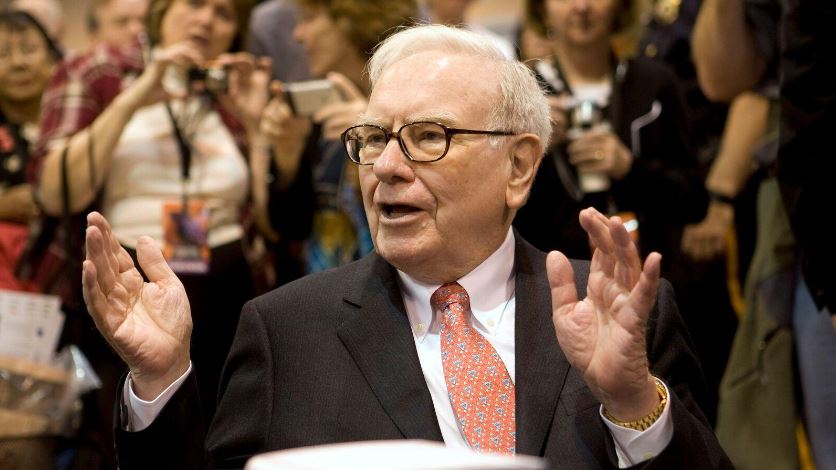Warren Buffett, one of the most respected investors in the world, is known for his long-term investment strategy and his preference for solid, well-managed companies. For years, his company, Berkshire Hathaway, has held a significant stake in Apple Inc., marking it as one of the company’s most successful investments. Recently, however, Berkshire Hathaway has been gradually reducing its position in Apple, generating billions in cash. This article explores why Buffett’s company is selling Apple shares, the potential implications for investors, and what it might signal about the broader market.
Berkshire Hathaway’s Investment in Apple
Berkshire Hathaway’s relationship with Apple has been one of the most talked-about investments of the past decade. Buffett initially began investing in Apple in 2016, with Berkshire’s stake growing significantly over the years. At one point, Apple represented over 40% of Berkshire’s stock portfolio, valued at well over $100 billion. The decision to invest heavily in Apple marked a shift from Buffett’s usual preference for consumer goods and financial companies, but it proved to be highly lucrative. Apple’s performance contributed billions to Berkshire Hathaway’s earnings, making it one of Buffett’s best investment moves.
Reasons Behind Selling Apple Stock
While Buffett and his team have been reducing their Apple holdings, they still retain a large portion of the stock. The gradual selling is a strategic move, possibly driven by a combination of factors:
- Valuation Concerns: Apple’s stock has surged significantly in recent years, and its valuation has reached new highs. As an investor known for value investing, Buffett may be concerned that Apple’s current price levels have outpaced its intrinsic value. By selling at these higher prices, Berkshire can lock in gains.
- Portfolio Diversification: Apple has represented an unusually large percentage of Berkshire’s overall portfolio. Reducing this concentration allows Berkshire to diversify and mitigate potential risks associated with over-reliance on a single company.
- Capital for New Investments: Selling Apple stock provides Berkshire with billions in cash. Buffett has always maintained a preference for having liquidity to take advantage of new investment opportunities, especially in times of economic downturn when high-quality assets become available at a discount.
- Share Buybacks: Berkshire Hathaway has been buying back its own stock in recent years, and the sale of Apple shares could be another way to fund these buybacks. Buffett sees share repurchases as a way to return value to shareholders, especially when he feels that Berkshire’s stock is undervalued.
Warren Buffett’s Cash Strategy
Buffett’s decision to hold substantial cash reserves has always been a hallmark of his investment strategy. Currently, Berkshire Hathaway is sitting on an estimated $150 billion in cash, making it one of the wealthiest companies in the world. Buffett’s cash strategy is based on his belief in being prepared for market corrections, recessions, or sudden opportunities. By selling some of its Apple shares, Berkshire has further increased its cash reserves, positioning the company for flexibility in uncertain economic times.
Buffett’s preference for cash allows him to act quickly during market downturns, as seen during the 2008 financial crisis when Berkshire invested in distressed companies like Goldman Sachs and Bank of America. Now, as economic uncertainties loom, having cash on hand provides Buffett with a strategic advantage to capitalize on potential market corrections or invest in undervalued assets.
Implications for Apple and the Broader Market
Berkshire Hathaway’s decision to reduce its Apple holdings has led some investors to question whether this signals a shift in confidence in the tech giant. However, it’s important to note that Berkshire still retains a significant position in Apple. Rather than a lack of faith in Apple’s future, this move likely represents a calculated approach to portfolio management and risk reduction.
For Apple, Berkshire’s gradual sale of shares is unlikely to impact its stock price significantly in the short term. Apple remains a highly profitable company with strong growth prospects, and demand for its stock continues to be robust. Still, this decision does raise questions for other investors who may be concerned about valuations in the tech sector.
What This Means for Investors
For investors, Buffett’s move serves as a reminder of the importance of a disciplined investment strategy. Here are a few takeaways:
- Maintain a Long-Term Perspective: Berkshire’s initial investment in Apple has yielded enormous gains because of its long-term approach. Buffett’s decision to hold Apple stock for years demonstrates the value of patience and staying invested in strong companies.
- Balance and Diversify: Even as Apple has been one of Berkshire’s best-performing stocks, Buffett understands the importance of balancing his portfolio. Investors can take this as a lesson to avoid over-concentrating in a single asset, no matter how successful it may seem.
- Consider Cash as a Strategic Tool: Holding cash allows for flexibility during uncertain times. While not everyone can hold billions like Berkshire, having cash available provides options to invest when opportunities arise.
- Stay Cautious with High Valuations: Apple’s high valuation might have motivated Buffett’s team to secure profits. When stock valuations surge, it’s wise to assess whether they align with a company’s intrinsic value.
Buffett’s Broader Market Outlook
Buffett’s approach often reflects his outlook on the economy. By selling Apple shares and increasing cash reserves, he may be preparing for potential economic volatility. The current economic landscape—characterized by inflation concerns, rising interest rates, and geopolitical uncertainty—might lead Buffett to take a more conservative stance. His cash reserves signal a readiness to act when opportunities align with Berkshire’s value-driven philosophy.
Conclusion: A Strategic Move for Berkshire Hathaway
Warren Buffett’s decision to reduce Berkshire Hathaway’s Apple stake is a strategic move that reflects a disciplined approach to investing. While Berkshire continues to hold a substantial position in Apple, the sales provide additional cash reserves, granting Buffett the flexibility to navigate uncertain markets.
For individual investors, Buffett’s strategy serves as a powerful reminder to maintain a balanced portfolio, be prepared with cash when possible, and consider long-term growth over short-term fluctuations. As Buffett continues to demonstrate, patience, discipline, and flexibility are essential components of successful investing.


